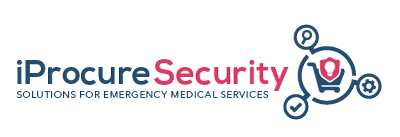480Terms
Help to improve our database
We are continuously collecting common terms used by the Emergency Medical Services practitioners across Europe. Help us improve our content and fill out the online form. If you are not able to find what you are looking for, please let us know by sending us a message through our contact page.
Your feedback is important for us and it will be fed into our Database for the EMS glossary.
Add new EMS termTo unify the communication and knowledge exchange between the emergency medical teams across Europe iProcureSecurity seeks to translate the identified EMS terms in all consortium languages.
That is why the project encourages everyone willing to contribute, to suggest and add missing terminology translation.
Add new translationiProcureSecurity Glossary
A protocol for managing trauma victims and designed to maximise management in the first (“golden”) hour after trauma and ensure an optimal long-term outcome. ATLS is usually performed by a team, with one team member securing the airway, another inserting venous cannula and another exposing the patient. The team leader should constantly repeat the protocol in further assessments to stabilise the patient, and plan for further management or definitive care.
Committee, commission, board or association as a third party.
Distinct abnormal pattern of breathing and brainstem reflex characterized by gasping, labored breathing, accompanied by strange vocalizations and myoclonus.
Training for EMS practitioners capable of providing immediate aid to patients of different age groups.
It is an unpaid, uncompensated workers who willingly give their time and effort to emergency preparedness and response activities
A specially equipped aircraft, typically a helicopter, used to transport sick or injured people to hospital in an emergency.
Airway management includes a set of manoeuvres and medical procedures performed to prevent and relieve airway obstruction. This ensures an open pathway for gas exchange between a patient's lungs and the atmosphere.
Securing the airway with laryngeal masks.
Positive pressure ventilation to patients who are not breathing or not breathing adequately.
Endotracheal intubation to secure the airway.

